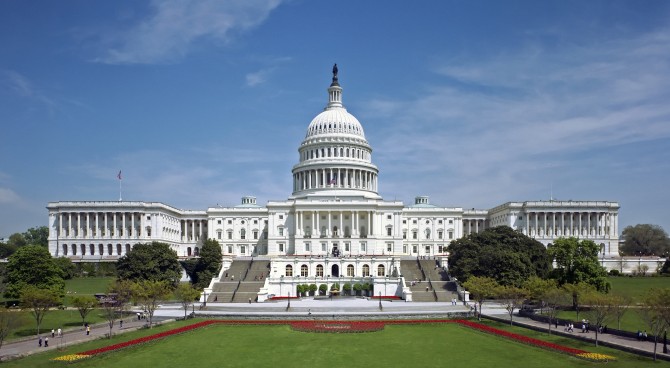As a precondition for any bailout deal, families should be permitted to opt out of ObamaCare.
While there is plenty of blame to go around for Republicans’ inability to repeal and replace Obama Care, the effort was all but doomed as soon as the GOP chose to fight on the wrong battlefield. Trying to pass a replacement through the budget process known as reconciliation was powerfully attractive, since it would have permitted the Senate to act on ObamaCare with only 51 votes.
But under the Senate’s rules for reconciliation, the debate was limited to actions that would directly affect revenues and expenditures, thereby forcing Republicans into an argument about how much to spend on ObamaCare beneficiaries.
Using reconciliation therefore precluded Senate debate on meaningful changes in policy that could have helped the millions of Americans harmed by ObamaCare. Since the debate turned on spending instead of health-care freedom, Republicans lost.
To understand where ObamaCare is vulnerable, first consider why President Obama succeeded in collectivizing American health care when President Clinton had failed. So long as the debate over ClintonCare centered on new benefits, support grew. At the high-water mark in 1993-94, as many as 74 senators supported ClintonCare or something very close to it. Concerns over cost and efficiency were shrugged off. The proposal fell apart only when Americans realized that ClintonCare would take away their freedom, forcing them into a system where government would largely control their health care.
Republicans might have forgotten that lesson, but Mr. Obama didn’t. To prevent a debate about coercion and lost freedom, he employed the most consequential lie in the recent history of American governance: “No matter how we reform health care, I intend to keep this promise: If you like your doctor, you’ll be able to keep your doctor; if you like your health-care plan, you’ll be able to keep your health-care plan.” This calculated falsehood, repeated by every congressional Democrat, focused the debate on providing new health-care benefits—and Democrats won.
Shortly after ObamaCare’s enactment, the nation discovered the truth: Millions of Americans had lost the freedom to choose their doctors and insurance plans, while many young and relatively healthy families found themselves coerced into a collectivist program designed to exploit them. In 2010 they went to the polls and elected a Republican House.
As rising premiums drowned out more of ObamaCare’s massive subsidies, the number of Americans who benefited from the law declined and the number hurt by it increased. The surging number of ObamaCare “losers” elected a Republican Senate in 2014 and helped put Mr. Trump in office two years later.
Fulfilling the GOP’s mandate to end ObamaCare, the House passed a bill that would restore health-care freedom, expand consumer choice, and pass control of Medicaid and the exchange subsidies back to the states. But then the bill was sent over to the Senate, where the parliamentarian dutifully enforced the rules of reconciliation. Thus, all the significant policy reforms adopted by the House were struck.
Republicans lost their most powerful issue in the health-care debate: giving Americans the freedom to refuse to participate in ObamaCare. When Republicans tried to put together a fallback plan under the rules of reconciliation, the argument degenerated into a bidding war. Republicans could not match ObamaCare’s benefits without preserving ObamaCare’s taxes, coercion and endless commitment to additional funding.
The GOP’s original strategy of defunding ObamaCare via reconciliation—a bill to that end had previously passed Congress and been vetoed by President Obama—might have been the first step toward success. By first defunding ObamaCare, Republicans could have forced a debate on a bipartisan replacement. That strategy worked for President Obama when he allowed the Bush tax cuts to expire at the end of 2012 and then engaged in bipartisan negotiations to rewrite the tax code.
President Trump has now created another such opening for compromise by announcing he will end ObamaCare’s cost-sharing payments to insurers. Without a constant injection of additional money, ObamaCare premiums will spiral upward, and the number of Americans who benefit from the program will continue to fall.
But the initial bipartisan bill, offered by Sens. Lamar Alexander (R., Tenn.) and Patty Murray (D., Wash.), is more of a capitulation than compromise. It resuscitates ObamaCare but hardly provides a fig leaf for Americans who want their health-care freedom back—the very people who elected Republicans.
Any agreement to restore funding for cost-sharing payments should be tied to provisions allowing families to opt out of ObamaCare and buy coverage that meets their individual needs. The compromise should also grant insurers the right to sell such plans independent of ObamaCare’s rules and its rigged risk pool.
A money-for-freedom compromise would at last provide an opportunity to debate health-care freedom, something the public was denied by the great ObamaCare lie. If Democrats refuse to allow ObamaCare’s losers to escape in return for funding for the program’s beneficiaries, it will be Democrats who let the program collapse. Throughout the debate they will be forced to argue against the very health-care freedom they falsely promised when they adopted ObamaCare.
If Republicans seize this high ground, they can quit fighting each other and the Senate parliamentarian and instead engage the one issue Democrats have successfully avoided for eight years: freedom. When the freedom debate begins, ObamaCare’s end will not be far behind.
Mr. Gramm, a former chairman of the Senate Banking Committee, is a visiting scholar at the American Enterprise Institute.



